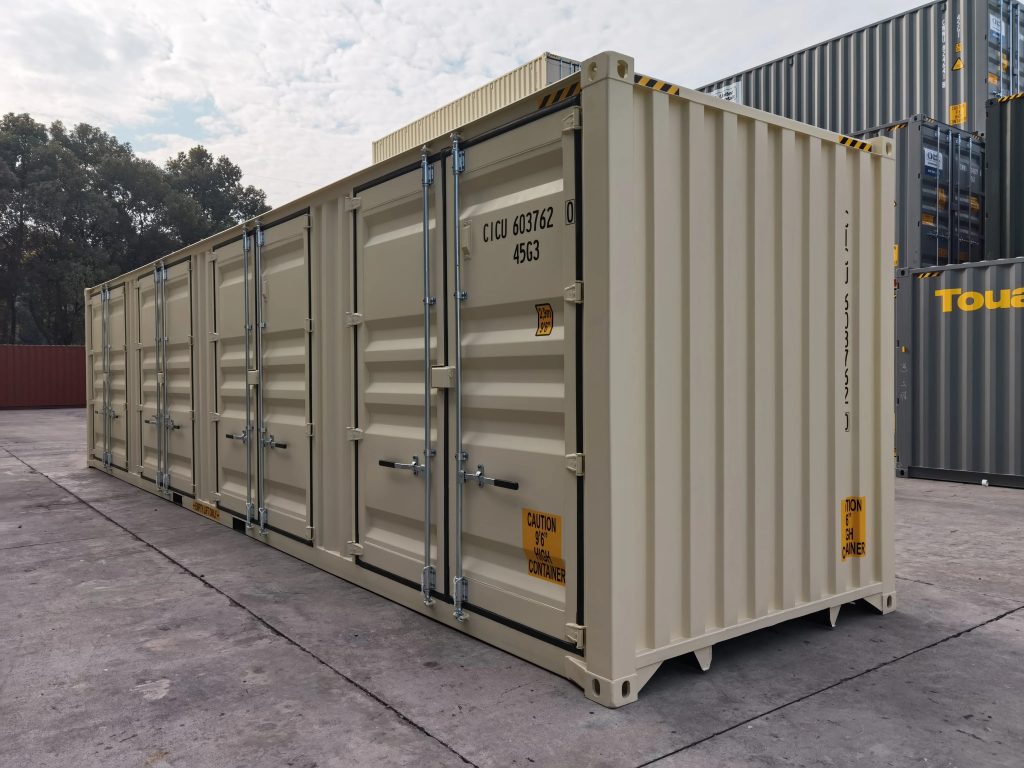The Most Negative Advice We've Ever Seen About Buy Used Shipping Containers Buy Used Shipping Containers

The Ultimate Guide to Buying Used Shipping Containers: A Sustainable Investment
In the last few years, the interest in purchasing used shipping containers has risen, driven by their versatility and sustainability. From Intermodal Containers housing solutions to storage spaces for companies, these containers use advantages that extend beyond conventional uses. In Steel Shipping Containers , we will explore the benefits of acquiring used shipping containers, suggestions for finding top quality choices, and answers to some frequently asked questions.
Why Buy Used Shipping Containers?
1. Economical Solutions
Among the most engaging reasons to buy used shipping containers is cost savings. New containers can be rather expensive, typically varying from ₤ 3,000 to ₤ 5,000. On the other hand, used containers can be bought at a portion of that cost, generally in between ₤ 1,200 and ₤ 3,000 depending on their size, condition, and age.
2. Sustainability
Buying used shipping containers is an ecologically friendly choice. They repurpose products that would otherwise add to garbage dump waste, permitting a more sustainable technique to construction and storage.
3. Flexibility
Shipping containers can serve a wide range of functions:
- Storage Units: Ideal for businesses wanting to broaden their storage capacity.
- Office Spaces: An economical service for short-lived or long-term office setups.
- Pop-up Shops or Cafes: Mobile services can love transformed containers.
- Residential Homes: Increasingly, individuals are selecting container homes due to their cost and performance.
4. Toughness
Developed to endure harsh marine environments, used shipping containers are exceptionally durable and weather-resistant. Their steel structure indicates they can endure tough conditions, making them an excellent choice for various applications.
Factors to Consider Before Buying
Before acquiring a used shipping container, potential purchasers ought to consider several key factors:
| Factor | Description |
|---|---|
| Condition | Inspect for any indications of damage, rust, or structural issues. |
| Size | Shipping containers usually can be found in 20 and 40 feet lengths, so determine what size fits your requirements. |
| Function | Ensure that the container you select fits your designated purpose, whether for storage, living, or business. |
| Location | Consider the logistics of carrying the container to your desired area. |
| Regulatory Compliance | Examine local zoning laws and guidelines to guarantee you can position a shipping container on your home or use it as intended. |
Where to Buy Used Shipping Containers
Used shipping containers are readily available from numerous sources:
1. Container Depots
Container depots often sell containers that have been retired from shipping fleets. They may use a choice of used containers in various conditions.
2. Online Marketplaces
Sites like eBay, Craigslist, or specialized online container sellers have actually listings for used containers, sometimes at competitive prices.
3. Regional Shipping Companies
Some shipping companies offer their used containers directly to the public. It might be rewarding to reach out to local services associated with shipping or logistics.
4. Auctions
Occasionally, shipping containers turn up for sale at liquidation or auction events, possibly allowing for considerable savings.
5. Container Brokers
These experts concentrate on connecting purchasers with sellers and can help browse the buying process, ensuring a smoother transaction.
How to Inspect a Used Shipping Container
When inspecting a used shipping container, consider the following list:
| Inspection Checkpoint | Notes |
|---|---|
| Exterior Condition | Look for dents, rust, and paint condition. |
| Interior Condition | Check for noticeable indications of damage or mold. |
| Floor | Guarantee that the flooring is undamaged and steady. |
| Doors and Locks | Inspect if doors open efficiently and locks work. |
| Ventilation | Confirm ventilation options if planned for living or storage. |
Pricing Overview
Here's a pricing table to give a concept of the costs associated with different types of used shipping containers:
| Container Type | Average Price Range |
|---|---|
| Basic 20' Container | ₤ 1,200 - ₤ 2,500 |
| Requirement 40' Container | ₤ 2,500 - ₤ 4,000 |
| High Cube 20' Container | ₤ 1,500 - ₤ 3,000 |
| High Cube 40' Container | ₤ 3,000 - ₤ 5,500 |
| Custom Containers | Differs substantially; typically begins at ₤ 3,000 |
Often Asked Questions
Q1: Can I customize a used shipping container?
Yes, many services provide customization choices for used shipping containers, allowing you to add windows, doors, insulation, and more.
Q2: Are used shipping containers safe for domestic usage?
Generally, yes. Nevertheless, you should ensure that interiors are correctly cleaned and any dangerous products are eliminated. It is constantly best to consult with specialists when making conversions for habitation.
Q3: How much does it cost to provide a used shipping container?
Delivery expenses can differ extensively based on distance and logistics, usually varying from ₤ 100 to ₤ 500. It is necessary to get quotes from transport companies before your purchase.
Q4: What can I do if I discover damage after the purchase?
If you examine a container and discover covert damages after the purchase, call the seller instantly. High Cube Shipping Containers provide a return policy or might cover small repairs, especially if you organized the sale through a broker.
Q5: Do I require a permit to place a shipping container on my property?
This extremely depends upon your local zoning laws. Some areas have rigorous policies relating to where and how shipping containers can be used, so always check with local authorities before continuing.
Purchasing a used shipping container can be a wise, economical choice for a wide variety of applications. With careful consideration and a little bit of research study, potential buyers can find containers that fulfill their needs while adding to sustainable practices. Whether it's for storage, innovative building solutions, or business ventures, the right shipping container can be an important financial investment.

